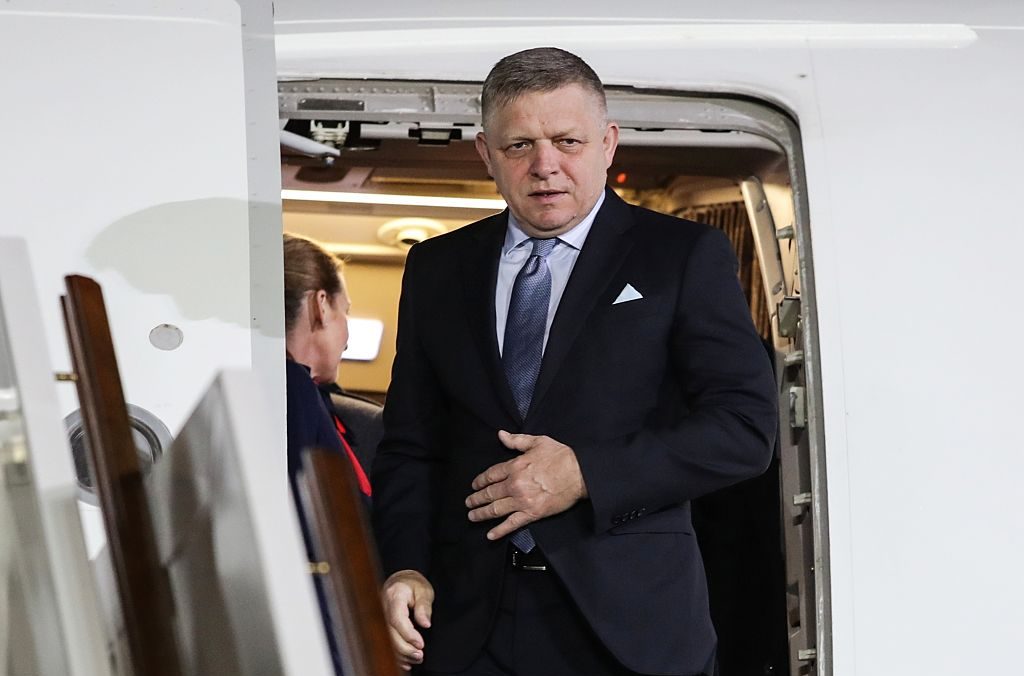Prime Minister Roberto Fico caused a stir Tuesday, declaring that “neutrality would suit Slovakia in a time of senseless armament” but that “unfortunately, it’s not for me to decide”.
His remark – labelled “scandalous” by the opposition – largely overshadowed a roundtable on defence spending, where both coalition and opposition parties agreed that Slovakia would not oppose the defence spending target negotiated by NATO.
At the upcoming NATO summit in The Hague on 24-25, NATO states are expected to agree on raising defense spending from 2% of GDP to 5%.
“I’m glad that we agreed across the political spectrum that Slovakia will not block the summit’s conclusions,” the president said at a press conference after the roundtable, adding that Bratislava would behave “responsibly” at the summit.
However, he noted that the increase should happen gradually over the span of 10 or more years, taking into account Slovakia’s need to consolidate its public finances. This could clash with the timelines of some other states, who push for the target to be met in five to seven years.
Rejecting Fico’s comment on neutrality
Pellegrini, like many others, criticised Fico’s neutrality statement as “a personal opinion“, reminding that the government’s program explicitly supports Slovakia’s NATO membership. He also called it “naive” to believe Bratislava could defend itself alone in the event of an attack.
“I see it as a provocative idea – something the prime minister is an expert in. The point is to flood the public space with a topic we’ll discuss for 20 days, only to arrive at no outcome,” Pellegrini said about Fico’s comment.
Political analysts agree that Fico frequently introduces diversionary topics into public discourse to deflect attention from the country’s real issues or topics unpopular with his voters – which defence spending is.
Fico used a similar tactic in April, when he suggested that possible defence increases should be decided by a referendum. At the same time – and without much publicity – he requested the European Commission to lift Slovakia’s debt brake for military spending.
Slovakia’s ever-shifting defense positions
The fact that Fico’s government appears ready to support a 5% GDP target is surprising, given its long-standing opposition to raising defense spending.
For instance, Defense Minister Robert Kaliňák (Smer-SD) has repeatedly stated – most recently in February – that he does not intend to raise the defense budget beyond 2%, and at most a “slight increase of about a tenth of a percent” might be considered.
Geopolitical analyst Jozef Hrabina explained the contrast by pointing out that in the past Slovakia has signed and approved all strategic documents and initiatives despite the often dismissive rhetoric of its officials.
“Slovakia – despite certain political statements – does not have a history of being a ‘rebel’ in practice,” he told Euractiv Slovakia.
